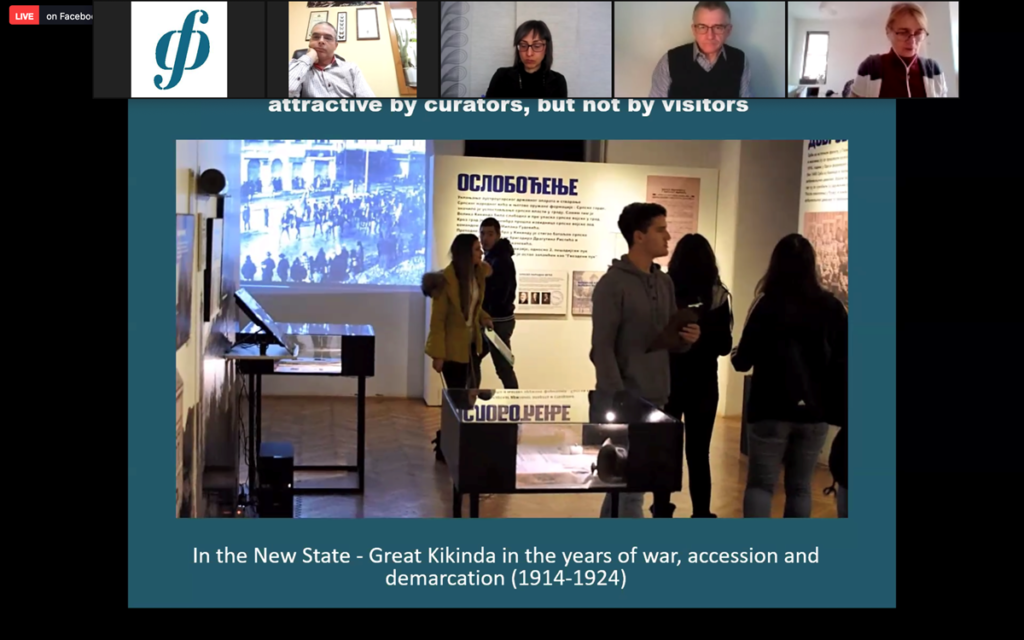Polyphony of Museums at the Piranova Colloquium
The FSK organised the third colloquium with the International Heritage Research Centre Piranova as planned in view of the changed circumstances. The colloquium titled Polyphony in Museums brought together more than 50 participants from 12 countries.
The lectures with 12 experts from 6 countries were divided into two thematic sections. “The third Piranova colloquium was conceived around two central topics. Our aim was to learn more about the captivating, attractive and creative exhibitions in the first section and move on to find out more about the activities through which museums engage and develop their audiences,” explained Dr. Andreja Rihter, Director of the Forum of Slavic Cultures, upon the conclusion of yet another successful colloquium with 50 participants from 12 countries.
The first speaker, Director General of the Russian National Museum of Music, Mikhail Bryzgalov, presented the first online multimedia exhibition The Music of Heroes (http://музыкагероев.рф). Irena Marušič from the Technical Museum of Slovenia presented the Knowledge without Frontiers project, and Tihana Turković, Director of Ivana’s House of Fairy Tales from Croatia, described her institution and the programmes through which they attract visitors. Galina Alekseeva, Head of Academic Research Department of the Leo Tolstoy Museum from Yasnaya Polyana, took the participants on a tour of Tolstoy’s personal library, and Iglika Mishkova, Acting Deputy Director of the Institute of Ethnology and Folklore Studies with Ethnographic Museum from Bulgaria, introduced an entirely new exhibition Pathways to the Table. Director of the National Museum of Kikinda in Serbia, Lidija Milašinović, gave an overview of a selection of their exhibitions and explained their appeal for the visitors. The first section concluded with lectures by speakers from the Faculty of Humanities of the University of Primorska and company Arhej d.o.o., namely Neža Čebron Lipovec, Katja Hrobat Virloget and Ana Plestenjak, who presented the Visitors’ Centre and Mythical Park Rodik.
In the section on museums’ audience development activities Katarina Ivanišin Kardum from the Technical Museum Nikola Tesla, Croatia, presented their programme #7minutesofmuseum; Aida Šarac from the National Art Gallery of Bosnia and Herzegovina talked about the educational methodology for children with autism spectrum; Saša Mesec presented the Slovenian Alpine Museum’s new strategy developed for the time of climate change, and Lana Bede from the Karlovac City Museum presented the Seeing by Touch, an exhibition that children find so enthralling that they just cannot leave. The Polyphony of Museums concluded with the presentation of fascinating East Slavic collections of the Russian Museum of Ethnography by the museum’s research fellow Anastasia Kalyuta.
The FSK and the International Heritage Research Centre Piranova will continue to organise their colloquiums, be it remotely during the epidemic emergency, or live, as soon as the situation allows.
Polyphony of Museums at the Piranova Colloquium

